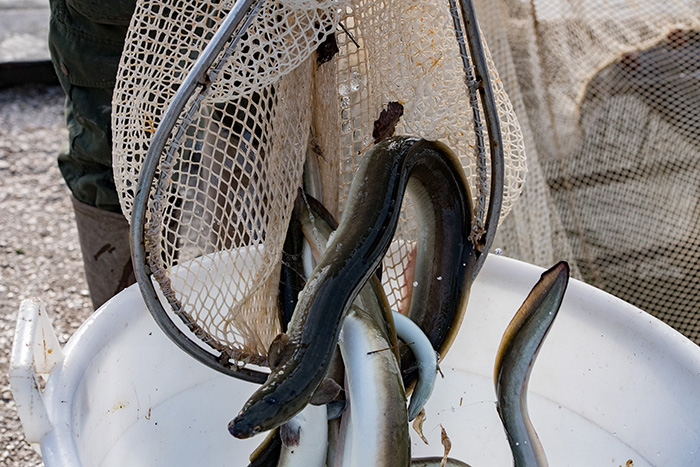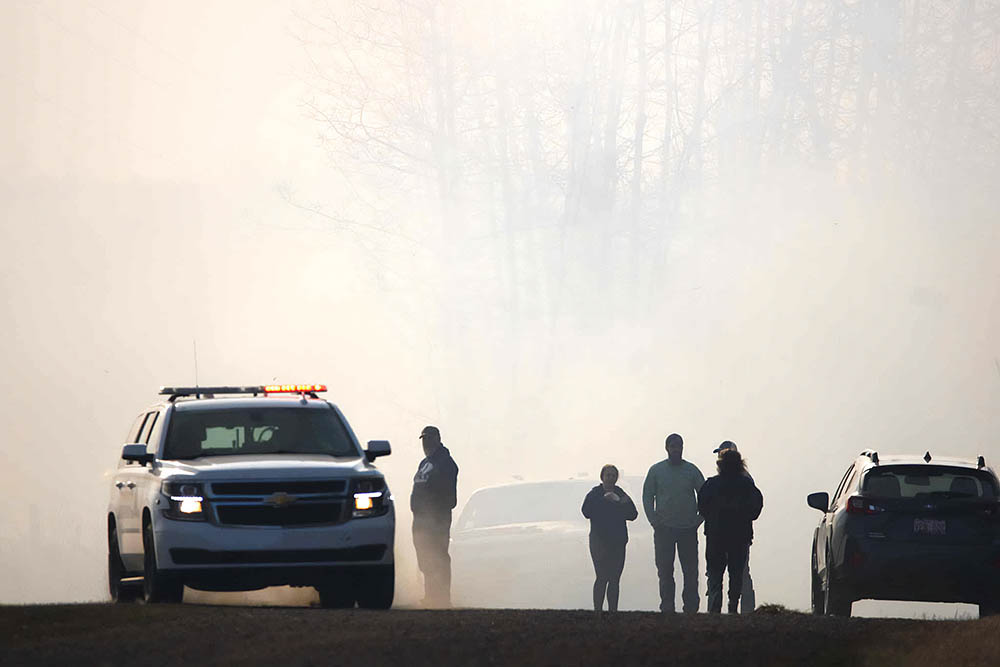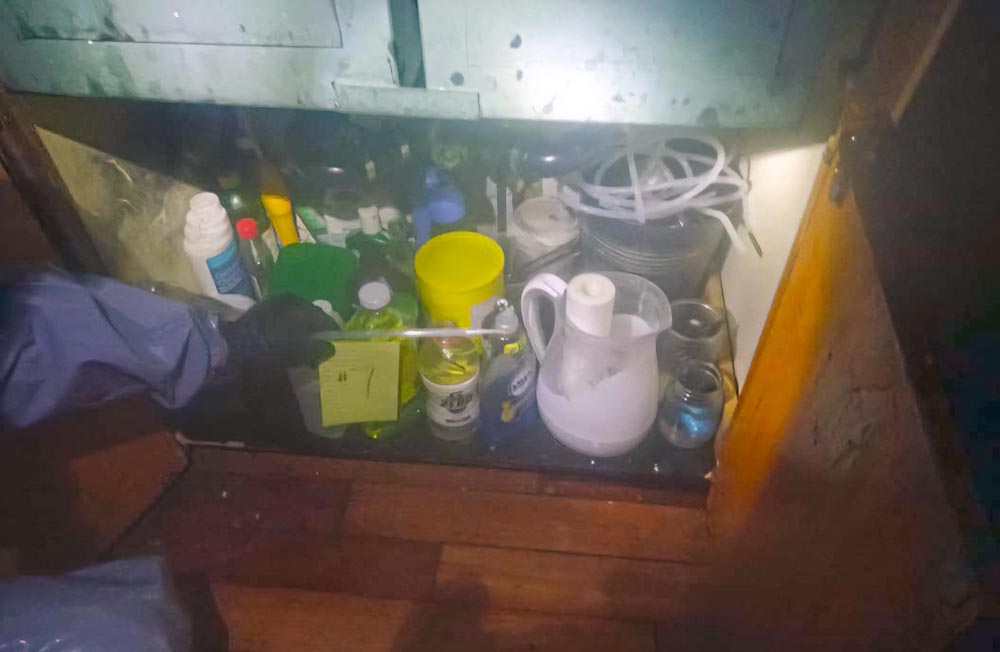John Chilibeck,
Local Journalism Initiative Reporter
The businesswoman whose family single-handedly developed New Brunswick’s baby eel industry has laid out why Ottawa’s proposed new sharing of the fishery with First Nations is unfair and threatens the livelihoods of her employees.
Mary Ann Holland says her family built the business from scratch and developed it into a multi-million-dollar industry that employs dozens of people. The federal government’s proposals would discourage other family-run businesses and damage the local economy, she argues.
“The industry should not be gutted at the expense of the employees and the families of those who have spent their lives creating and building it,” the Rothesay businesswoman told Brunswick News. “As an industry, we should be asked to contribute to reconciliation and, when asked, we have. It is a question of balance.”
Ottawa is considering the idea of giving half of the annual quota for lucrative baby eels, or elvers, in the Maritimes to First Nations, a massive change that would shake up the industry.
In New Brunswick, where Mary Ann Holland’s two companies control much of the industry in southwest New Brunswick, the change would see her lose almost two-thirds of the catch her family once had because the Wolastoqey Nation has already been provided a portion of the existing quota.
In its consultations with industry and First Nations, the federal Department of Fisheries and Oceans, also called DFO, has floated the idea of redistributing the quota to increase First Nations participation in the elver fishery and allow their members to make a moderate livelihood. It would be part of larger reconciliation efforts toward Indigenous people who were shunted aside during colonial times.
DFO has also suggested a portion of the elver fishery could be reserved for new entrants, without spelling out how much.
The Wolastoqey chiefs whose six communities line the St. John River have praised the idea, arguing they have not been able to harvest the eels in all of their traditional lands.
Besides them, the Passamaquoddy/Peskotomuhkati at Skutik, who mostly live in the St. Andrews area, and Fort Folly Mi’kmaq First Nation near Dorchester in southeastern New Brunswick are interested in the elver harvest.
A historian who focuses on Aboriginal rights and Indigenous claims says it’s a wonder what took Ottawa so long to give First Nations a stake in the elver industry.
“It should have been done 20 years ago,” Ken Coates said, referring to the aftermath of the Supreme Court decision in the Donald Marshall, Jr. case, when it ruled the Mi’kmaq man in Nova Scotia had a treaty right to catch adult eels in pursuit of a moderate livelihood.
“In the Maritimes, when it comes to the fisheries, we’re always playing catchup.”
The University of Saskatchewan professor said First Nations have been trying to boost economic development in their communities after being excluded for decades from mainstream business circles and simply wanted to tap into a resource on their traditional land.
But he said people in the industry also deserved a fair shake.
“You have to have nothing but sympathy for the non-Indigenous folks who are not only feeling pinched in the industry but are feeling left out of the decision-making process.”
Coates, who used to teach at the University of New Brunswick, said it would make more sense for DFO to consult meaningfully with the industry, rather than present the options as a done deal.
In the past, for instance, Ottawa has bought out lobster licenses, vessels and other equipment from established fishermen before giving new licences to First Nations. They also paid non-Indigenous fishermen to provide training.
“When you have full consultations, with First Nations and non-Indigenous fishers involved in the discussions, you have much more of an opportunity to get things right. What they’re doing now is piecemeal.
“I feel bad for the people on the ground, who know what’s going on, not the folks in Ottawa.”
Elvers, also called baby or glass eels, are the small, translucent creatures that wash up from the sea in Maritime rivers in the spring.
Their popularity in Asian cuisine and the collapse of eel stocks in Europe has pushed prices up markedly.
Buyers who ship the North American eels to Asia, where they’re grown in tanks to adulthood, have paid as much as $5,000 a kilogram for them, although prices have moderated somewhat this year to closer to $4,000 per kg.
Holland’s late husband Philip developed the local industry 35 years ago, eventually amassing nets, buying boats and vehicles, putting up accommodation for 17 workers, and building a processing plant and a holding facility, much of it in Pennfield, 60 km west of Saint John.
In recent years, the department allocated nearly 14 per cent of her yearly 1,000-kg quota to First Nations. If the latest proposal goes ahead, she would effectively lose almost half her remaining business, worth millions.
Holland is suing Wolastoqey leaders and Indigenous members for what she considers poaching on the rivers over the last few years, allegations that have not been proven in court.
Because of the lawsuit, many First Nation leaders are reluctant to talk about the elver situation publicly.
Due to the threat of violence on the water and rampant unauthorized harvesting, the federal fisheries minister suspended the season this year indefinitely.
Last year alone, authorities in the region received more than 1,500 reports of baby eel poaching in the region.
Earlier this month, her lawyer filed an amended statement of claim, adding more defendants to the lawsuit whom she said were missed on the first round.
In a letter sent July 15 to Jacinta Berthier, the regional director of fisheries management with DFO, Holland pointed out that of the 90 rivers and tributaries in New Brunswick where elvers wash up every spring, she is only one licensed on 14 of them, including the St. Croix River, Dennis Stream and Waweig River.
She says her commercial logbooks dating back to the 1980s and that of two Nova Scotia firms operating in New Brunswick provide the only evidence of how healthy the stocks are, and she questions why First Nations are not being asked to do their own research on other potential sites.
She added that before DFO takes away the existing quota from the industry, it should use its own scientists to figure out if the harvest could be expanded to include more entrants, ensuring it is sustainable and doesn’t threaten the species with extinction.
“In providing this response, I feel that DFO is merely checking a box that I have been consulted,” she wrote.
“I view this proposal as part of a plan executed by DFO over the last several years to give the elver fishing industry to First Nations at the expense (without compensation) of the founders and families that created and invested in it, leaving us a shell of the former fishery.”
She said she worries the new plan won’t allow her to sell her licence or to leave it as an inheritance, despite her family’s hard work to sustain the industry.
“The plan has been executed systematically, with malice, in bad faith and by various means including the failure to enforce against rampant poaching and violence and the closures of the elver fishery,” she wrote.
“Instead of advancing reconciliation, (the government’s) proposal fails to recognize our efforts in that direction, rewards bad behaviour and feeds growing negative expectations.
“It sets a dangerous precedent not only for the elver fishery but also for all Maritime fishing industries.”
John Chilibeck,
Local Journalism Initiative Reporter
The Daily Gleaner


